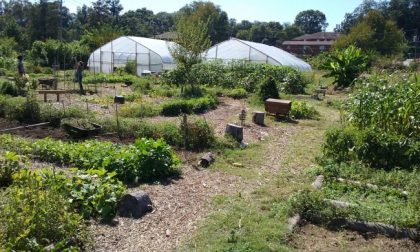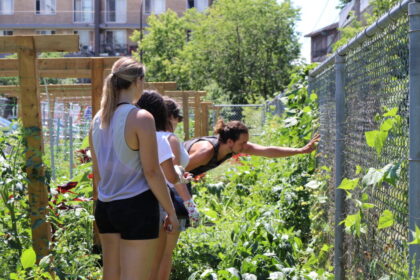
Description
Edible Activism
Humanities BXH – Ethics
Monday 6PM
Room – 8b.12
Facebook Page – https://www.facebook.com/groups/edibleactivism/
Have you ever heard of Castoreum? Castoreum is the yellowish secretion of the castor sac (anal gland of the beaver) and is used as a flavour enhancer in candies, beverages, frozen dairy foods, baked goods, chewing gum, pudding and a variety of other processed foods. Many people are not aware that they are consuming the anal secretion of beavers because the term Castoreum does not appear on the list of ingredients. Instead, it is placed under the umbrella ‘natural flavours’. This course is designed to address ethical concerns regarding food.
In this course, we will become food activists and contribute to the pursuit of a more environmentally sustainable, socially responsible, cooperative food system. We will engage with community food organizations in and around Dawson College. In particular, we will meet and participate with key players who have laid fertile ground for the development of a healthier food system. We will critically analyze how food is produced, procured, processed, distributed, stored, and transported. We will learn about the economy of food by analyzing a variety of actors, like multinational food corporations, governments and community organizations. We will discuss a variety of issues regarding food, including: food security, food privilege, food sovereignty, food customs, communal food production, and waste management. We will review food policies in Quebec, Canada and the world at large.
The class will work on a collective project designed to enhance the food system at Dawson College. Together, the class will build a website that will display research findings, blog posts, events and activities about food groups in and around Dawson College. The website is located HERE.
Class participants will each take turns facilitating a discussion based on the assigned readings of the week – as found in the course schedule. The facilitator will be responsible for summarizing the readings and leading a discussion about the topic at hand. Furthermore, participants will take turns preparing food for the class. The person who prepared the food of the week must inform the class about the conditions that brought about the food; including, ingredients (what is in your dish), production (growing conditions, labour conditions, etc.), distribution (where is the food available to obtain, who sells the food, etc.), transportation (where did the food travel from), and processing/transformation (cooking/preserving processes). Students will submit a recipe for the food they prepared to post on the website.
Participants will attend a conference on food and write a blog post about the conference to add to the website. These conferences include, Bite Me! – 2016 (at Concordia University), the forum organized by (SAM) Système Alimentaire Montrealais and/or another food related conference.





